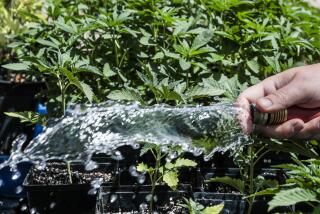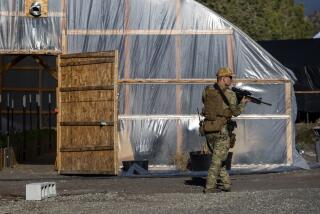The Regulate, Control and Tax Cannabis Act of 2010
Section 1: Name
This Act shall be known as the “Regulate, Control and Tax Cannabis Act of 2010.”
Section 2: Findings, Intent and Purposes
This Act, adopted by the People of the State of California, makes the following Findings and Statement of Intent and Purpose:
A. Findings
1. California’s laws criminalizing cannabis (marijuana) have failed and need to be reformed. Despite spending decades arresting millions of non-violent cannabis consumers, we have failed to control cannabis or reduce its availability.
2. According to surveys, roughly 100 million Americans (around 1/3 of the country’s population) acknowledge that they have used cannabis, 15 million of those Americans having consumed cannabis in the last month. Cannabis consumption is simply a fact of life for a large percentage of Americans.
3. Despite having some of the strictest cannabis laws in the world, the United States has the largest number of cannabis consumers. The percentage of our citizens who consume cannabis is double that of the percentage of people who consume cannabis in the Netherlands, a country where the selling and adult possession of cannabis is allowed.
4. According to The National Research Council’s recent study of the 11 U.S. states where cannabis is currently decriminalized, there is little apparent relationship between severity of sanctions and the rate of consumption.
5. Cannabis has fewer harmful effects than either alcohol or cigarettes, which are both legal for adult consumption. Cannabis is not physically addictive, does not have long term toxic effects on the body, and does not cause its consumers to become violent.
6. There is an estimated $15 billion in illegal cannabis transactions in California each year. Taxing and regulating cannabis, like we do with alcohol and cigarettes, will generate billions of dollars in annual revenues for California to fund what matters most to Californians: jobs, health care, schools and libraries, roads, and more.
7. California wastes millions of dollars a year targeting, arresting, trying, convicting, and imprisoning non-violent citizens for cannabis related offenses. This money would be better used to combat violent crimes and gangs.
8. The illegality of cannabis enables for the continuation of an out-of-control criminal market, which in turn spawns other illegal and often violent activities. Establishing legal, regulated sales outlets would put dangerous street dealers out of business.
B. Purposes
1. Reform California’s cannabis laws in a way that will benefit our state.
2. Regulate cannabis like we do alcohol: Allow adults to possess and consume small amounts of cannabis.
3. Implement a legal regulatory framework to give California more control over the cultivation, processing, transportation, distribution, and sales of cannabis.
4. Implement a legal regulatory framework to better police and prevent access to and consumption of cannabis by minors in California.
5. Put dangerous, underground street dealers out of business, so their influence in our communities will fade.
6. Provide easier, safer access for patients who need cannabis for medical purposes.
7. Ensure that if a city decides not to tax and regulate the sale of cannabis, that buying and selling cannabis within that city’s limits remain illegal, but that the city’s citizens still have the right to possess and consume small amounts, except as permitted under Health and Safety Sections 11362.5 and 11362.7 through 11362.9.
8. Ensure that if a city decides it does want to tax and regulate the buying and selling of cannabis (to and from adults only), that a strictly controlled legal system is implemented to oversee and regulate cultivation, distribution, and sales, and that the city will have control over how and how much cannabis can be bought and sold, except as permitted under Health and Safety Sections 11362.5 and 11362.7 through 11362.9.
9. Tax and regulate cannabis to generate billions of dollars for our state and local governments to fund what matters most: jobs, healthcare, schools and libraries, parks, roads, transportation, and more.
10. Stop arresting thousands of non-violent cannabis consumers, freeing up police resources and saving millions of dollars each year, which could be used for apprehending truly dangerous criminals and keeping them locked up, and for other essential state needs that lack funding.
11. Allow the Legislature to adopt a statewide regulatory system for a commercial cannabis industry.
12. Make cannabis available for scientific, medical, industrial, and research purposes.
13. Permit California to fulfill the state’s obligations under the United States Constitution to enact laws concerning health, morals, public welfare and safety within the State.
14. Permit the cultivation of small amounts of cannabis for personal consumption.
C. Intent
1. This Act is intended to limit the application and enforcement of state and local laws relating to possession, transportation, cultivation, consumption and sale of cannabis, including but not limited to the following, whether now existing or adopted in the future: Health and Safety Code sections 11014.5 and 11364.5 [relating to drug paraphernalia]; 11054 [relating to cannabis or tetrahydrocannabinols]; 11357 [relating to possession]; 11358 [relating to cultivation]; 11359 [possession for sale]; 11360 [relating to transportation and sales]; 11366 [relating to maintenance of places]; 11366.5 [relating to use of property]; 11370 [relating to punishment]; 11470 [relating to forfeiture]; 11479 [relating to seizure and destruction]; 11703 [relating to definitions regarding illegal substances]; 11705 [actions for use of illegal controlled substance]; Vehicle Code sections 23222 and 40000.15 [relating to possession].
2. This Act is not intended to affect the application or enforcement of the following state laws relating to public health and safety or protection of children and others: Health and Safety Code sections 11357 [relating to possession on school grounds]; 11361 [relating to minors as amended herein]; 11379.6 [relating to chemical production]; 11532 [relating to loitering to commit a crime or acts not authorized by law]; Vehicle Code section 23152 [relating to driving while under the influence]; Penal Code section 272 [relating to contributing to the delinquency of a minor]; nor any law prohibiting use of controlled substances in the workplace or by specific persons whose jobs involve public safety.
Section 3: Lawful Activities
Article 5 of Chapter 5 of Division 10 of the Health and Safety Code, commencing with section 11300 is added to read:
Section 11300: Personal Regulation and Controls
(a) Notwithstanding any other provision of law, it is lawful and shall not be a public offense under California law for any person 21 years of age or older to:
(i) Personally possess, process, share, or transport not more than one ounce of cannabis, solely for that individual’s personal consumption, and not for sale.
(ii) Cultivate, on private property by the owner, lawful occupant, or other lawful resident or guest of the private property owner or lawful occupant, cannabis plants for personal consumption only, in an area of not more than twenty-five square feet per private residence or, in the absence of any residence, the parcel. Cultivation on leased or rented property may be subject to approval from the owner of the property. Provided that, nothing in this section shall permit unlawful or unlicensed cultivation of cannabis on any public lands.
(iii) Possess on the premises where grown the living and harvested plants and results of any harvest and processing of plants lawfully cultivated pursuant to section 11300(a)(ii), for personal consumption.
(iv) Possess objects, items, tools, equipment, products and materials associated with activities permitted under this subsection.
(b) “Personal consumption” shall include but is not limited to possession and consumption, in any form, of cannabis in a residence or other non-public place, and shall include licensed premises open to the public authorized to permit on-premises consumption of cannabis by a local government pursuant to section 11301.
(c) “Personal consumption” shall not include, and nothing in this Act shall permit cannabis:
(i) possession for sale regardless of amount, except by a person who is licensed or permitted to do so under the terms of an ordinance adopted pursuant to section 11301;
(ii) consumption in public or in a public place;
(iii) consumption by the operator of any vehicle, boat or aircraft while it is being operated, or that impairs the operator;
(iv) smoking cannabis in any space while minors are present.
Section 11301: Commercial Regulations and Controls
Notwithstanding any other provision of state or local law, a local government may adopt ordinances, regulations, or other acts having the force of law to control, license, regulate, permit or otherwise authorize, with conditions, the following:
(a) cultivation, processing, distribution, the safe and secure transportation, sale and possession for sale of cannabis, but only by persons and in amounts lawfully authorized;
(b) retail sale of not more than one ounce per transaction, in licensed premises, to persons 21 years or older, for personal consumption and not for resale;
(c) appropriate controls on cultivation, transportation, sales, and consumption of cannabis to strictly prohibit access to cannabis by persons under the age of 21;
(d) age limits and controls to ensure that all persons present in, employed by, or in any way involved in the operation of, any such licensed premises are 21 or older;
(e) consumption of cannabis within licensed premises;
(f) safe and secure transportation of cannabis from a licensed premises for cultivation or processing, to a licensed premises for sale or on-premises consumption of cannabis;
(g) prohibit and punish through civil fines or other remedies the possession, sale, possession for sale, cultivation, processing, or transportation of cannabis that was not obtained lawfully from a person pursuant to this section or section 11300;
(h) appropriate controls on licensed premises for sale, cultivation, processing, or sale and on-premises consumption, of cannabis, including limits on zoning and land use, locations, size, hours of operation, occupancy, protection of adjoining and nearby properties and persons from unwanted exposure, advertising, signs and displays, and other controls necessary for protection of the public health and welfare;
(i) appropriate environmental and public health controls to ensure that any licensed premises minimizes any harm to the environment, adjoining and nearby landowners, and persons passing by;
(j) appropriate controls to restrict public displays, or public consumption of cannabis;
(k) appropriate taxes or fees pursuant to section 11302;
(l) such larger amounts as the local authority deems appropriate and proper under local circumstances, than those established under section 11300(a) for personal possession and cultivation, or under this section for commercial cultivation, processing, transportation and sale by persons authorized to do so under this section;
(m) any other appropriate controls necessary for protection of the public health and welfare.
Section 11302: Imposition and Collection of Taxes and Fees
(a) Any ordinance, regulation or other act adopted pursuant to section 11301 may include imposition of appropriate general, special or excise, transfer or transaction taxes, benefit assessments, or fees, on any activity authorized pursuant to such enactment, in order to permit the local government to raise revenue, or to recoup any direct or indirect costs associated with the authorized activity, or the permitting or licensing scheme, including without limitation: administration; applications and issuance of licenses or permits; inspection of licensed premises and other enforcement of ordinances adopted under section 11301, including enforcement against unauthorized activities.
(b) Any licensed premises shall be responsible for paying all federal, state and local taxes, fees, fines, penalties or other financial responsibility imposed on all or similarly situated businesses, facilities or premises, including without limitation income taxes, business taxes, license fees, and property taxes, without regard to or identification of the business or items or services sold.
Section 11303: Seizure
(a) Notwithstanding sections 11470 and 11479 of the Health and Safety Code or any other provision of law, no state or local law enforcement agency or official shall attempt to, threaten to, or in fact seize or destroy any cannabis plant, cannabis seeds or cannabis that is lawfully cultivated, processed, transported, possessed, possessed for sale, sold or used in compliance with this Act or any local government ordinance, law or regulation adopted pursuant to this Act.
Section 11304: Effect of Act and Definitions
(a) This Act shall not be construed to affect, limit or amend any statute that forbids impairment while engaging in dangerous activities such as driving, or that penalizes bringing cannabis to a school enrolling pupils in any grade from kindergarten through 12, inclusive.
(b) Nothing in this Act shall be construed or interpreted to permit interstate or international transportation of cannabis. This Act shall be construed to permit a person to transport cannabis in a safe and secure manner from a licensed premises in one city or county to a licensed premises in another city or county pursuant to any ordinances adopted in such cities or counties, notwithstanding any other state law or the lack of any such ordinance in the intervening cities or counties.
(c) No person shall be punished, fined, discriminated against, or be denied any right or privilege for lawfully engaging in any conduct permitted by this Act or authorized pursuant to Section 11301 of this Act. Provided however, that the existing right of an employer to address consumption that actually impairs job performance by an employee shall not be affected.
(d) Definitions
For purposes of this Act:
(i) “Marijuana” and “cannabis” are interchangeable terms that mean all parts of the plant Genus Cannabis, whether growing or not; the resin extracted from any part of the plant; concentrated cannabis; edible products containing same; and every active compound, manufacture, derivative, or preparation of the plant, or resin.
(ii) “One ounce” means 28.5 grams.
(iii) For purposes of section 11300(a)(ii) “cannabis plant” means all parts of a living Cannabis plant.
(iv) In determining whether an amount of cannabis is or is not in excess of the amounts permitted by this Act, the following shall apply:
(a) only the active amount of the cannabis in an edible cannabis product shall be included;
(b) living and harvested cannabis plants shall be assessed by square footage, not by weight in determining the amounts set forth in section 11300(a);
(c) in a criminal proceeding a person accused of violating a limitation in this Act shall have the right to an affirmative defense that the cannabis was reasonably related to his or her personal consumption.
(v) “residence” means a dwelling or structure, whether permanent or temporary, on private or public property, intended for occupation by a person or persons for residential purposes, and includes that portion of any structure intended for both commercial and residential purposes.
(vi) “local government” means a city, county, or city and county.
(vii) “licensed premises” is any commercial business, facility, building, land or area that has a license, permit or is otherwise authorized to cultivate, process, transport, sell, or permit on-premises consumption, of cannabis pursuant to any ordinance or regulation adopted by a local government pursuant to section 11301, or any subsequently enacted state statute or regulation.
Section 4: Prohibition on Furnishing Marijuana to Minors
Section 11361 of the Health and Safety Code is amended to read:
Prohibition on Furnishing Marijuana to Minors
(a) Every person 18 years of age or over who hires, employs, or uses a minor in transporting, carrying, selling, giving away, preparing for sale, or peddling any marijuana, who unlawfully sells, or offers to sell, any marijuana to a minor, or who furnishes, administers, or gives, or offers to furnish, administer, or give any marijuana to a minor under 14 years of age, or who induces a minor to use marijuana in violation of law shall be punished by imprisonment in the state prison for a period of three, five, or seven years.
(b) Every person 18 years of age or over who furnishes, administers, or gives, or offers to furnish, administer, or give, any marijuana to a minor 14 years of age or older shall be punished by imprisonment in the state prison for a period of three, four, or five years.
(c) Every person 21 years of age or over who knowingly furnishes, administers, or gives, or offers to furnish, administer or give, any marijuana to a person aged 18 years or older, but younger than 21 years of age, shall be punished by imprisonment in the county jail for a period of up to six months and be fined up to $1,000 for each offense.
(d) In addition to the penalties above, any person who is licensed, permitted or authorized to perform any act pursuant to Section 11301, who while so licensed, permitted or authorized, negligently furnishes, administers, gives or sells, or offers to furnish, administer, give or sell, any marijuana to any person younger than 21 years of age shall not be permitted to own, operate, be employed by, assist or enter any licensed premises authorized under Section 11301 for a period of one year.
Section 5: Amendment
Pursuant to Article 2, section 10(c) of the California Constitution, this Act may be amended either by a subsequent measure submitted to a vote of the People at a statewide election; or by statute validly passed by the Legislature and signed by the Governor, but only to further the purposes of the Act. Such permitted amendments include but are not limited to:
(a) Amendments to the limitations in section 11300, which limitations are minimum thresholds and the Legislature may adopt less restrictive limitations.
(b) Statutes and authorize regulations to further the purposes of the Act to establish a statewide regulatory system for a commercial cannabis industry that addresses some or all of the items referenced in Sections 11301 and 11302.
(c) Laws to authorize the production of hemp or non-active cannabis for horticultural and industrial purposes.
Section 6: Severability
If any provision of this measure or the application thereof to any person or circumstance is held invalid, that invalidity shall not affect other provisions or applications of the measure that can be given effect without the invalid provision or application, and to this end the provisions of this measure are severable.
More to Read
Start your day right
Sign up for Essential California for news, features and recommendations from the L.A. Times and beyond in your inbox six days a week.
You may occasionally receive promotional content from the Los Angeles Times.






